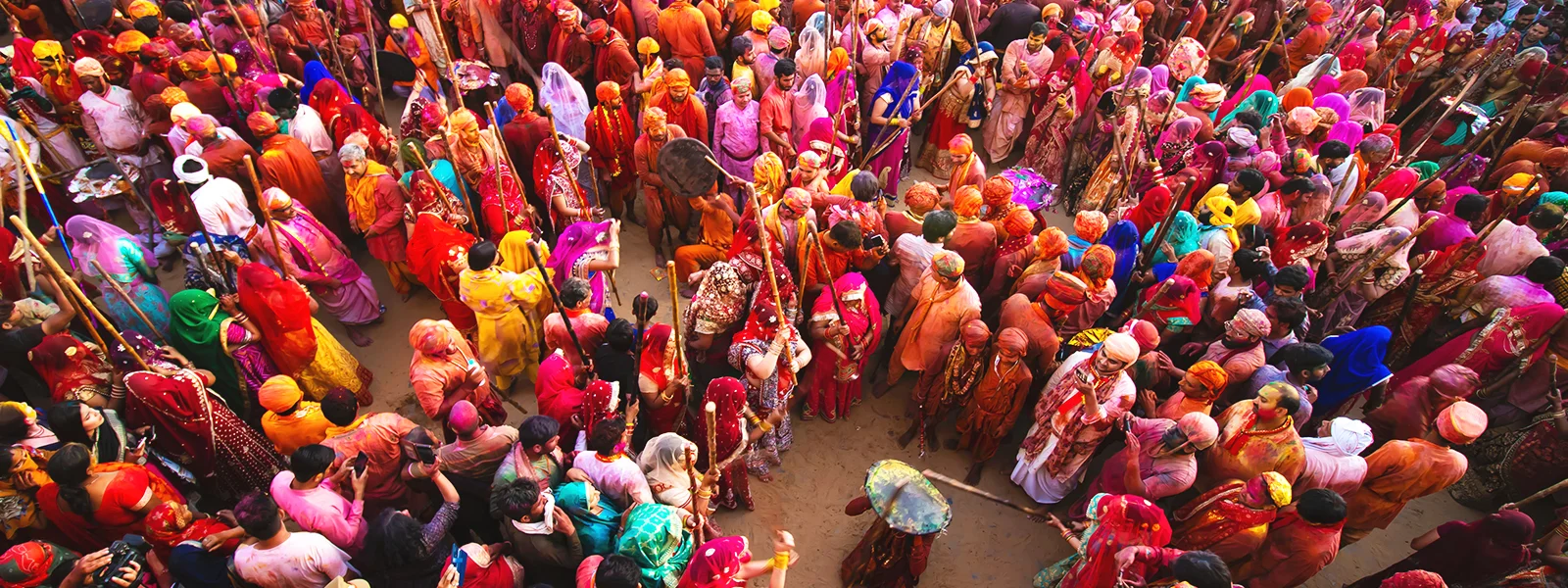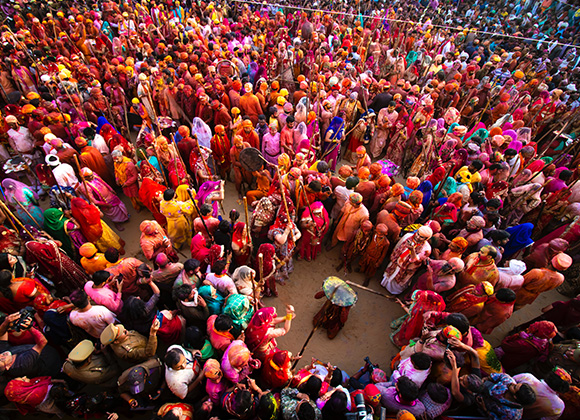INDIA: A Kaleidoscope of Festivals - Celebrating Diversity, Unity, and Tradition in its own unique way
Introduction: India or Bharat, often referred to as the land of festivals, is a country where every day seems like a celebration. Drenched in cultural diversity, this vibrant nation boasts a rich tapestry of festivals that span across religions, regions, and communities. These festivities not only reflect the unique heritage and traditions but also underline the spirit of unity in diversity that defines India.
If you want to explore India with the best French-speaking guide, join our French-Speaking Travel Agency in India and experience the country's beauty.
Diverse Culture and Common Celebrations: India's medley of festivals encompasses a spectrum of religious and cultural celebrations. From Diwali, celebrated by Hindus as the festival of lights, to Eid, marking the end of Ramadan for Muslims, and Christmas for Christians, the country is a melting pot of celebrations. Each festival is a testimony to the coexistence of diverse traditions in a harmonious manner enabling all religions, casts and creeds to live in harmony.
Synergy in Diversity: Festivals in India serve as a binding force, transcending religious and regional boundaries. Regardless of one's background, people come together to take part in the joyous celebrations. For instance, during Diwali, streets are adorned with colorful lights, and people from various communities join in the festivities, exchanging sweets and good wishes. The spirit of togetherness during these celebrations showcases the unity that prevails amidst diversity.
Colorful Burlesques: Indian festivals are synonymous with vibrant colors, lively music, and spirited dances. The festival of Holi, known as the festival of colors, sees people playfully dousing each other in brightly colored powders. Navratri, celebrated with energetic Garba and Dandiya dances, is a nine-night extravaganza marked by traditional attire and lively music. These festivals not only bring joy but also provide a visual spectacle that captivates both locals and visitors alike.
Amalgation of Tradition with Modernity: While rooted in tradition, Indian festivals have evolved over the times. The advent of technology has given rise to virtual celebrations, connecting people across the globe. During festivals like Raksha Bandhan, where sisters tie protective threads around their brothers' wrists, technology enables those separated by distance to celebrate the occasion through video calls, emphasizing the seamless integration of tradition and modernity.
Festivals and the Economy: Festivals play a significant role in the economy, driving commerce and trade. Markets come alive with shoppers during festivals like Diwali, Eid, and Christmas, contributing significantly to the retail sector. Additionally, artisans and craftsmen thrive during these times as demand for traditional handicrafts, clothes, and decorations surges.
Rich Rural Culture: Indian village culture and festivals offer a vibrant tapestry that reflects the rich traditions and close-knit community life. In rural India, the essence of culture is deeply intertwined with the agrarian way of life, fostering a sense of unity and shared heritage. Villages, often characterized by tight-knit communities, celebrate a myriad of festivals that serve as a communal glue, binding people together through rituals and festivities. These celebrations showcase the rural ethos, emphasizing values of togetherness, simplicity, and gratitude for nature's bounty.
One such festival is Pongal, widely celebrated in South India, marking the harvest season. Villagers come together to express gratitude to the sun god for a bountiful harvest, sharing traditional dishes and engaging in folk dances. Additionally, festivals like Holi, Diwali, and Navratri bring a burst of color, light, and music to the villages, creating a lively atmosphere. Village fairs during these celebrations become hubs of cultural exchange, showcasing traditional arts, crafts, and performances.
The village culture also revolves around close social bonds, where everyone knows each other, fostering a sense of belonging and collective responsibility. Through these festivals, Indian villages preserve and pass on their cultural heritage, creating a harmonious blend of tradition and community spirit that continues to thrive in the heart of rural India.

- Pongal/Makar Sankranti: Celebrated predominantly in South India, it marks the harvest season and expresses gratitude to the sun god.
- Baisakhi: Celebrated in Punjab and Haryana, it marks the Sikh New Year and the harvest festival.
- Bihu: Celebrated in Assam, it marks the Assamese New Year and the onset of the agricultural season.
- Onam: Celebrated in Kerala, it is a harvest festival and is marked by elaborate feasts and traditional dance forms.
- Navratri and Durga Puja: Celebrated across India, especially in Gujarat and West Bengal, it involves nine nights of dance, music, and worship of Goddess Durga.
- Ganesh Chaturthi: Celebrated in Maharashtra and other parts of India, it involves the worship of Lord Ganesha with grand processions and cultural events.
- Rath Yatra: Celebrated in Puri, Odisha, it involves the procession of deities on elaborately decorated chariots.
- Karva Chauth: Widely celebrated in North India, it is a fasting ritual observed by married women for the well-being of their husbands.
- Lohri: Celebrated in Punjab, it marks the end of winter and is associated with bonfires, music, and dance.
- Gudi Padwa: Celebrated in Maharashtra, it marks the Marathi New Year with cultural events and festive processions.
- Bhagoria Festival: Celebrated by the Bhil tribe in Madhya Pradesh, it involves traditional dances and matchmaking.
- Magh Bihu: Celebrated in Assam, it marks the end of the harvesting season with feasts, bonfires, and traditional music.
These festivals showcase the rich cultural diversity and traditions that thrive in rural India, fostering a sense of community and celebrating the agricultural way of life.
Conclusion: India has been home for all religions and ethnicities in the world, Hindu, Muslims, Christians, Jains, Persians and even Jews with its myriad festivals, stands as a testament to the country's cultural richness and unity. The celebrations not only provide a glimpse into the nation's diverse heritage but also reinforce the idea that despite differences, people can come together in the spirit of joy and festivity. As the country continues to celebrate its festivals with gusto, the world witnesses a unique blend of tradition, modernity, and the unifying force that defines India as a truly exceptional land of festivals.

